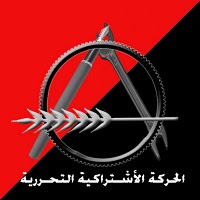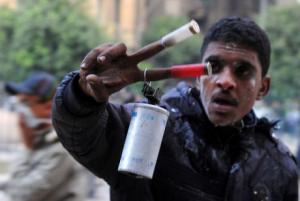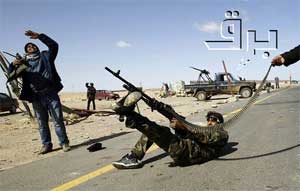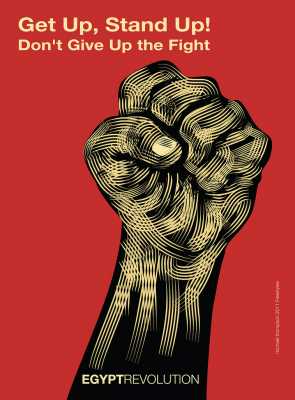Over 30 years of anarchist writing from Ireland listed under hundreds of topics
Arab spring
Syrian Kurdistan takes a different route to the Arab Spring – a first hand experience- audio
Zaher Baher of the Kurdistan Anarchists Forum spoke at the 2014 London Anarchist Bookfair about the two weeks he spent in Syrian Kurdistan in May 2014, looking at the experiences of self-management in the region, experiments that have become more widely discussed as the result of the defense of Kobane against ISIS. Zaher is also a member of Haringey Solidarity Group
Anarchist Eyewitness to self-management in Kurdish Syria / West Kurdistan by Workers Solidarity on Mixcloud
The Royal College of Surgeons Ireland and the Repression of Alumni, Fellows and all Hospital Workers in Bahrain
Witness Bahrain Ireland has called a demonstration this Tuesday because two RCSI alumni (who trained in Dublin) will be sentenced this Thursday (14th June) under scurrilous circumstances. It is hoped that bearing witness and raising awareness about this issue will prompt the RSCI to use its influence in Bahrain[2] to help persecuted medical workers (some of whom the RSCI employs and have trained). The two medical workers [due to receive their final sentencing on Thursday 14th] were arrested, tortured and sentenced in a military court for treating peaceful demonstrators who were victims of police brutality.[3] The RSCI response to this should be prompt, vigorous and completely unequivocal.
Solidarity with the popular struggle in Egypt against SCAF and for a new revolution
 During the upsurge of protest in Egypt ahead of the elections, protests that demanded that the miltary step down and the 12,000 political prisoners be released the WSM signed the following international solidarity statement initiated by the Egyptian Libertarian Socialist Movement on Anarkismo.net.
During the upsurge of protest in Egypt ahead of the elections, protests that demanded that the miltary step down and the 12,000 political prisoners be released the WSM signed the following international solidarity statement initiated by the Egyptian Libertarian Socialist Movement on Anarkismo.net.
The statement signed by 23 organisations in 20 countries was also published in [العربية] [Català] [Castellano] [Français] [Ελληνικά] [Italiano] and [Danish].
An Egyptian anarchist on the renewed revolution in Egypt
 As revolution once more erupts in Egypt Yasser Abdullah from the Egyptian Libertarian Socialist Movement has explained what is going on in two interviews with Anarkismo.net. He outlines the origins of this latest phase of the revolution, of note is how a sit-in of just a few dozen a few days ago was the catalyist that has resulted in the mobilizations of hundreds of thousands. (Image: Lilian Wagdy)
As revolution once more erupts in Egypt Yasser Abdullah from the Egyptian Libertarian Socialist Movement has explained what is going on in two interviews with Anarkismo.net. He outlines the origins of this latest phase of the revolution, of note is how a sit-in of just a few dozen a few days ago was the catalyist that has resulted in the mobilizations of hundreds of thousands. (Image: Lilian Wagdy)
Yasser looks at the relationship between the Islamists including the Muslim Brotherhood and the military council (SCAF) and how those defending the square on the 20th were the "the main revolutionary forces and the unorganised youth" and not the brotherhood. On the 20th Yasser concludes by saying "the people now realize that their power lies in a leaderless, collective movement."
By the 22nd Sharraf’s government is offering to resign and Yasser is outlining what the demands of the people are and that the Egyptian anarchist communist movement is using the slogan "All power to the people" and "calling for civil disobedience all over Egypt and for a general strike by the Egyptian workers."
Occupy Wall Street offer of election observers for Egypt shocks us
Comrades from Cairo explain why they are puzzled by the offer of Occupy Wall Street to send election monitors to Egypt for the elections when "Our struggle—which we think we share with you—is greater and grander than a neatly functioning parliamentary democracy; we demanded the fall of the regime, we demanded dignity, freedom and social justice, and we are still fighting for these goals. We do not see elections of a puppet parliament as the means to achieve them."
The occupiers of Tahrir Square are with you - violence, defense & police repression

This statement from 'Comrades from Cairo' expresses solidarity and a sense of common struggle with the Occupy movement that has sprung up across the globe. It explains that the movement in Cairo was not non-violent but rather when police tried to evict Tahir square "Barricades were erected, officers were beaten back and pelted with rocks even as they fired tear gas and live ammunition on us. But at the end of the day on 28 January they retreated, and we had won our cities."
As Gaddafi falls - Lessons from Libya - imperialism, anti-imperialism & democratic revolution
With Al Jazerra reporting that Gaddafi has been killed during or after the closing phase of the battle of Sitre Andrew look's back at the rebellion in Libya and the decade of co-operation with imperialism that preceeded it.
The sudden end of the Gaddafi regime some 6 months after the start of the Libyan revolt leaves some difficult questions unanswered for the left. Gaddafi’s determination to physically crush the revolt quickly transformed it into a civil war, a civil war that saw considerable imperialist intervention on the rebel side, intervention that was essential to their eventual victory. This and Gaddafi’s historic record led to some on the left taking his side in the civil war while other organisations tried to balance support for the ‘Arab spring’s’ arrival in Libya with opposition to imperialism. This question of where the balance lies between international solidarity with pro-democracy movements and opposition to imperialism could well rapidly return to the top of the agenda in a very much bigger way as the regime in Syria continues its months long military suppression of the democracy movement there.
(Image from B.R.Q. via Flickr under Creative Commons )
What kind of democracy for the Arab world?
 In a previous article, I said that the events shaking the Arab world today are as relevant as those that shook the world in 1989 [1]. Not only can parallels be made on the extent and depth of discontent over a vast geographical area, but also because this whirlwind of popular fury places a question mark over a particular geopolitical architecture that was hitherto believed to be as strong as steel. In this case, these long-standing dictatorships were fed, promoted and installed by the geo-strategic interests of the USA (and its junior partner, the EU) in an area of critical concern as far as oil is concerned. In 1989 the political consequences of the demonstrations were deep and long-lasting - the fall of "real socialist" regimes not only meant the fall of a few unpleasant bureaucratic dictatorships, but because of the relative weakness of a truly libertarian and revolutionary Left, represented the fall of a set of political values and horizons that were incorrectly associated with the Soviet bloc, and the overwhelming rise of neo-liberalism as the unquestioned system in the economic, political, values and ideological field.
In a previous article, I said that the events shaking the Arab world today are as relevant as those that shook the world in 1989 [1]. Not only can parallels be made on the extent and depth of discontent over a vast geographical area, but also because this whirlwind of popular fury places a question mark over a particular geopolitical architecture that was hitherto believed to be as strong as steel. In this case, these long-standing dictatorships were fed, promoted and installed by the geo-strategic interests of the USA (and its junior partner, the EU) in an area of critical concern as far as oil is concerned. In 1989 the political consequences of the demonstrations were deep and long-lasting - the fall of "real socialist" regimes not only meant the fall of a few unpleasant bureaucratic dictatorships, but because of the relative weakness of a truly libertarian and revolutionary Left, represented the fall of a set of political values and horizons that were incorrectly associated with the Soviet bloc, and the overwhelming rise of neo-liberalism as the unquestioned system in the economic, political, values and ideological field.
The Arab Spring, News and Reflections from an anarchist eyewitness perspective - audio
 José Antonio Gutiérrez Danton returned from Egypt with news of the state of the struggle for greater freedom in the post-Mubarak era to give this presentation at the 2011 Dublin anarchist bookfair.
José Antonio Gutiérrez Danton returned from Egypt with news of the state of the struggle for greater freedom in the post-Mubarak era to give this presentation at the 2011 Dublin anarchist bookfair.
Inside Egypt: An Interview with Mohamed Abdelfattah, Alexandria.
This is the first of a series of interviews with Egyptians speaking directly of their experiences within the revolution and ongoing struggles. I hope to cover some themes not covered by the traditonal/mainstream press, and allow space for Eygptians themselves to talk about aspects of the recent uprising they feel is important. The bias toward experiential knowledge is a conscious choice, simply because it is often the most neglected form of knowledge in political story telling. Ordinary voices are held as a poor sibling to powerful deterministic political forces and quickly subsumed into an unbending tide of formal history, which cannot speak to the lived experience of people themselves as agents of change and shapers of their own destiny.

